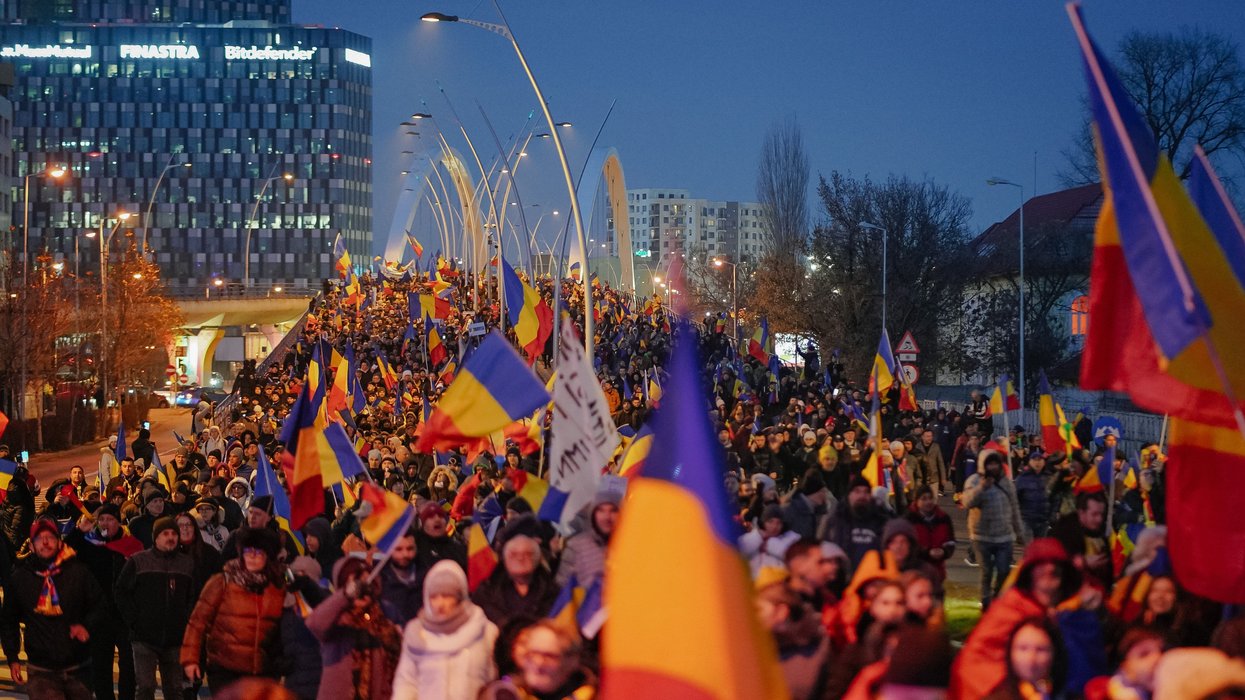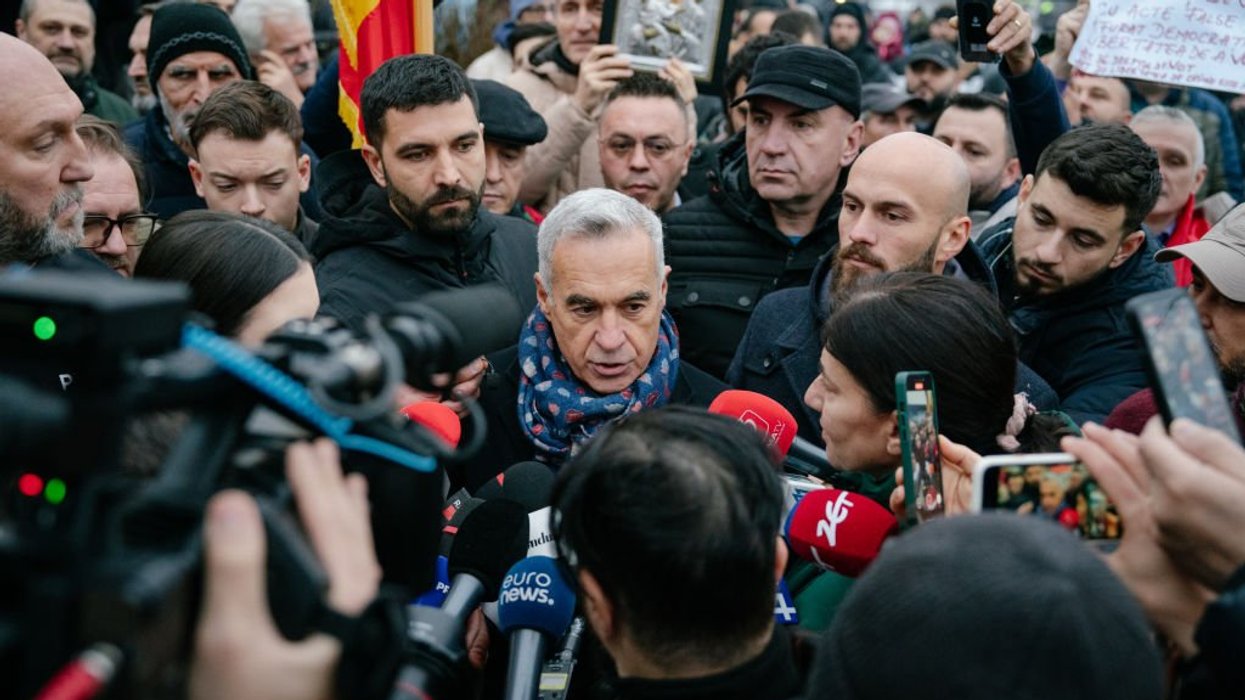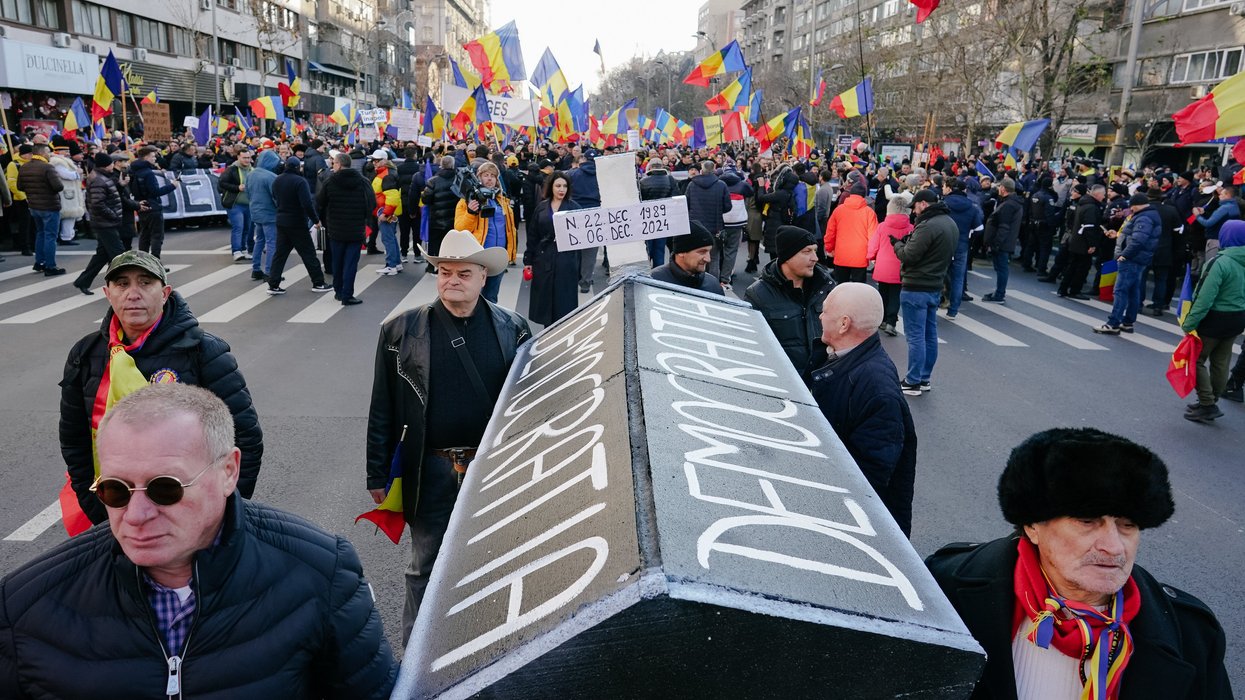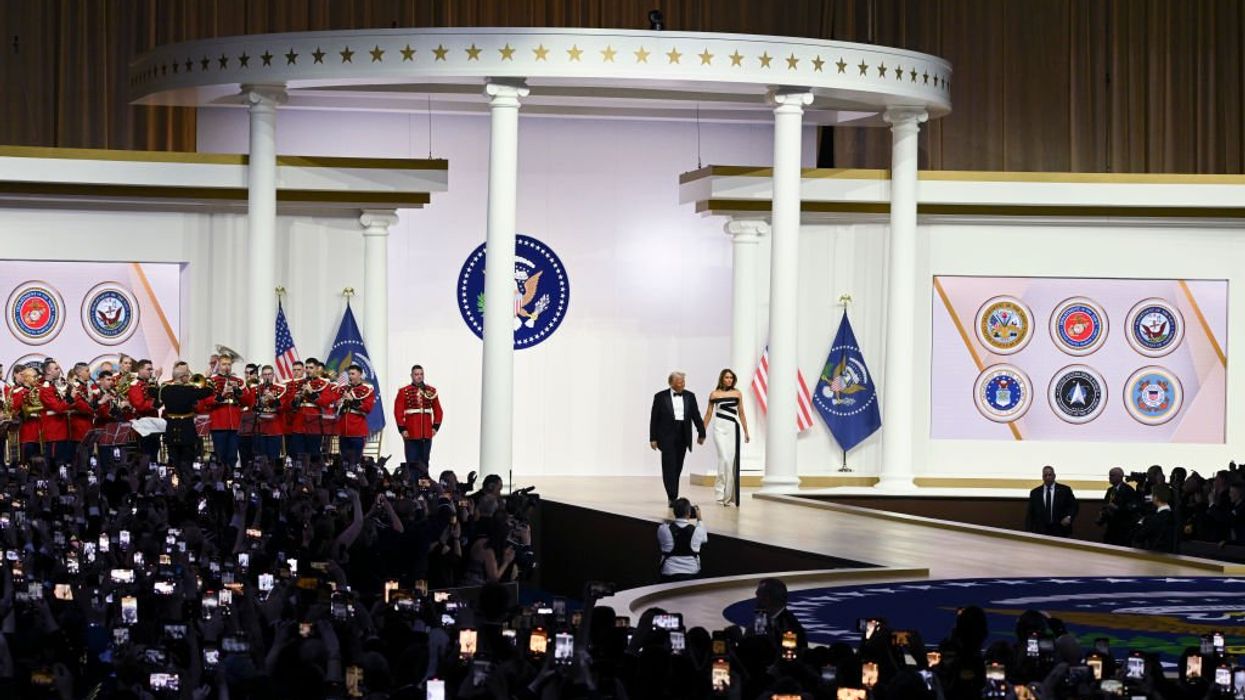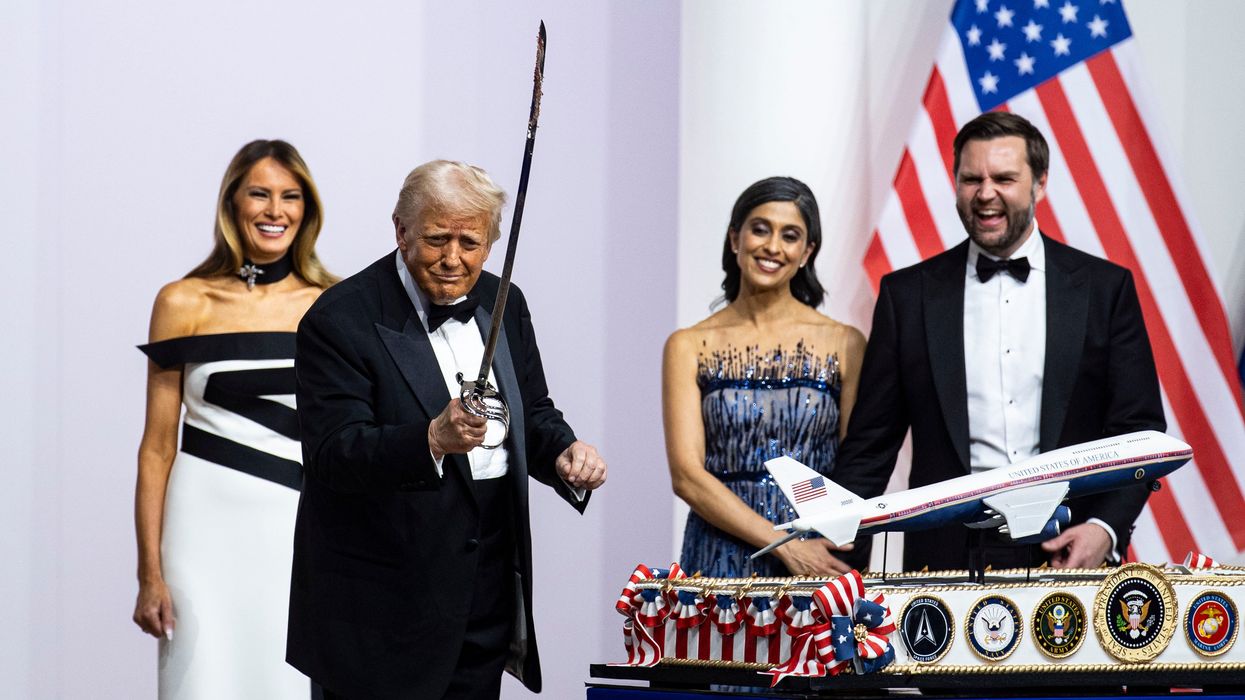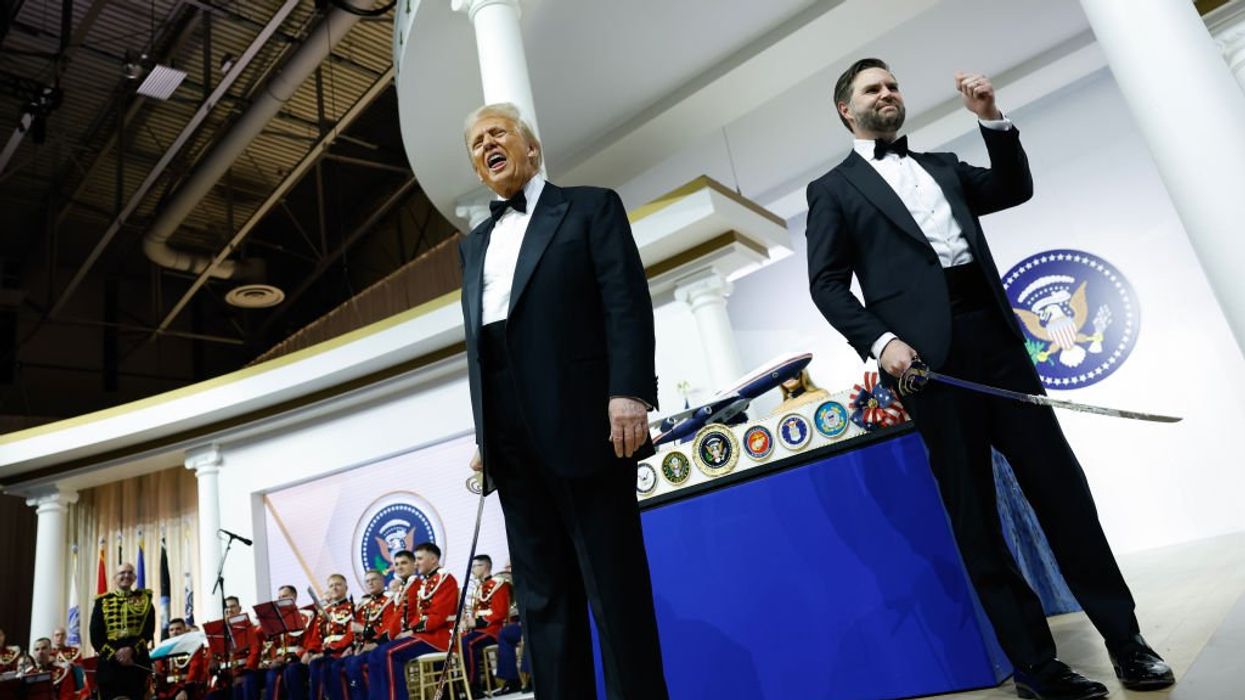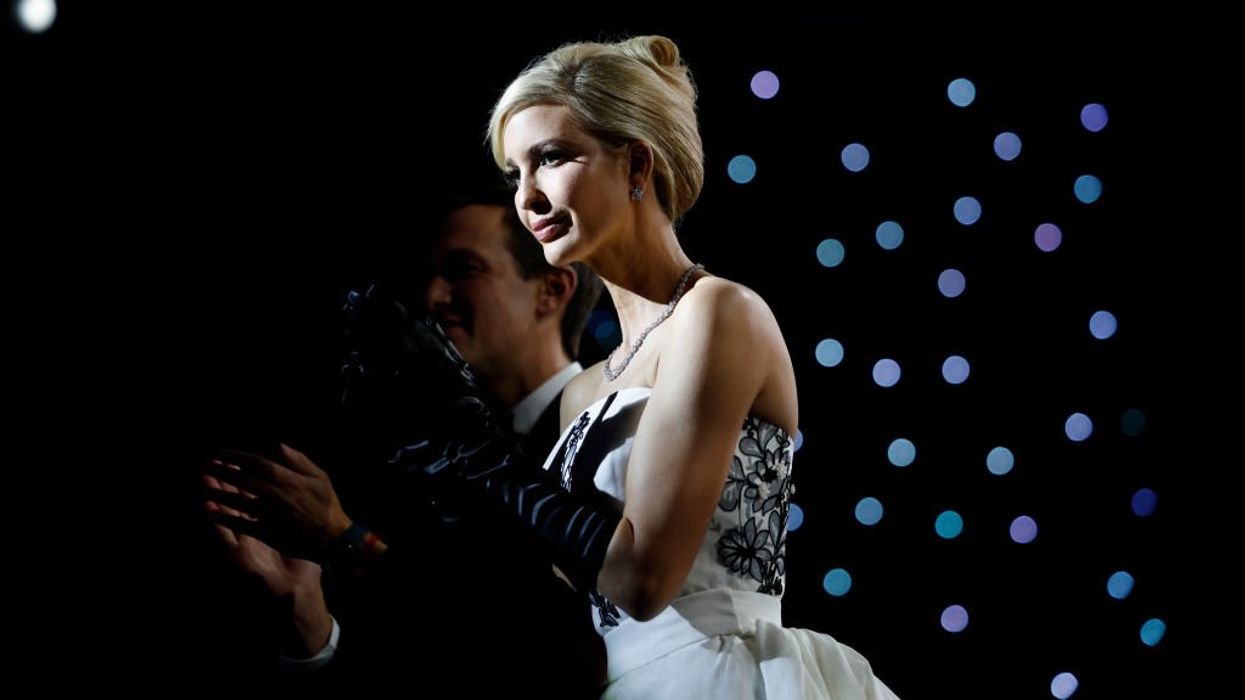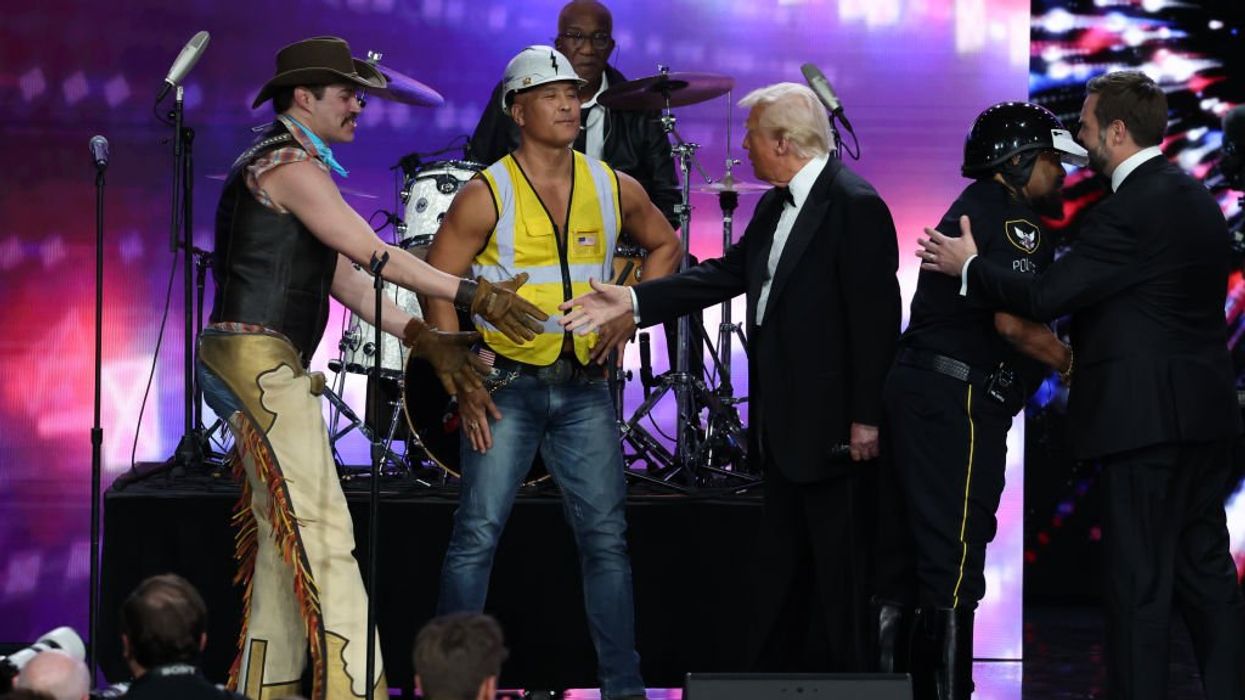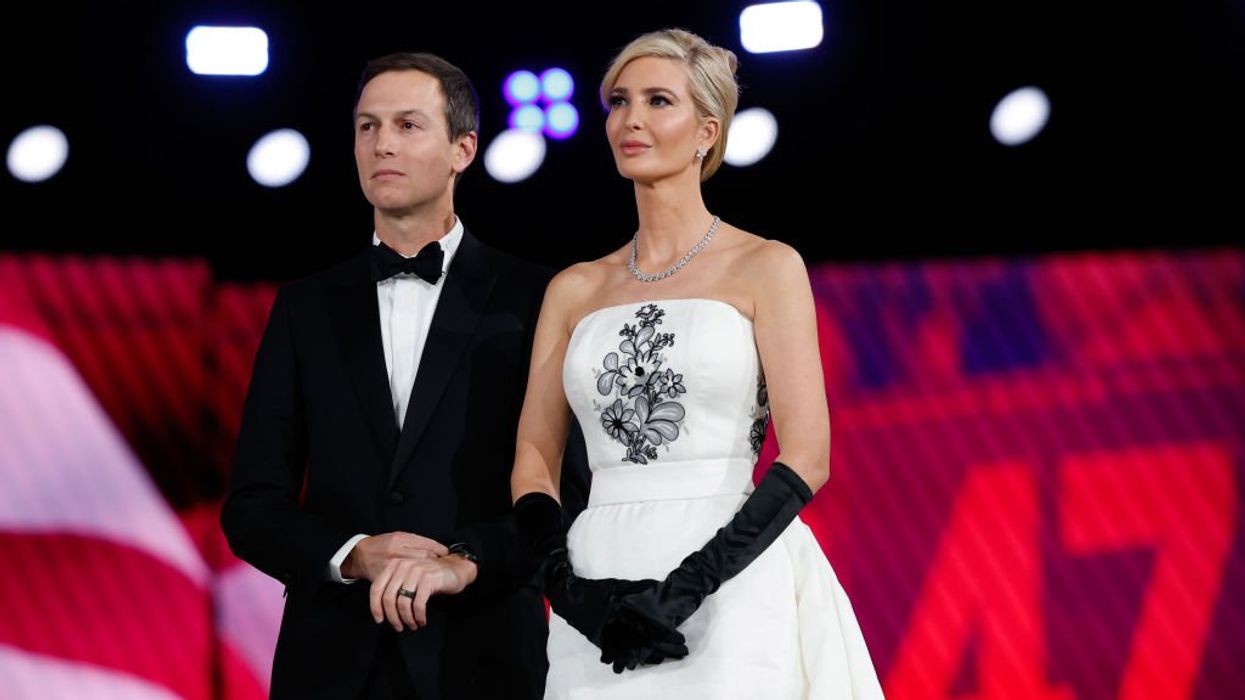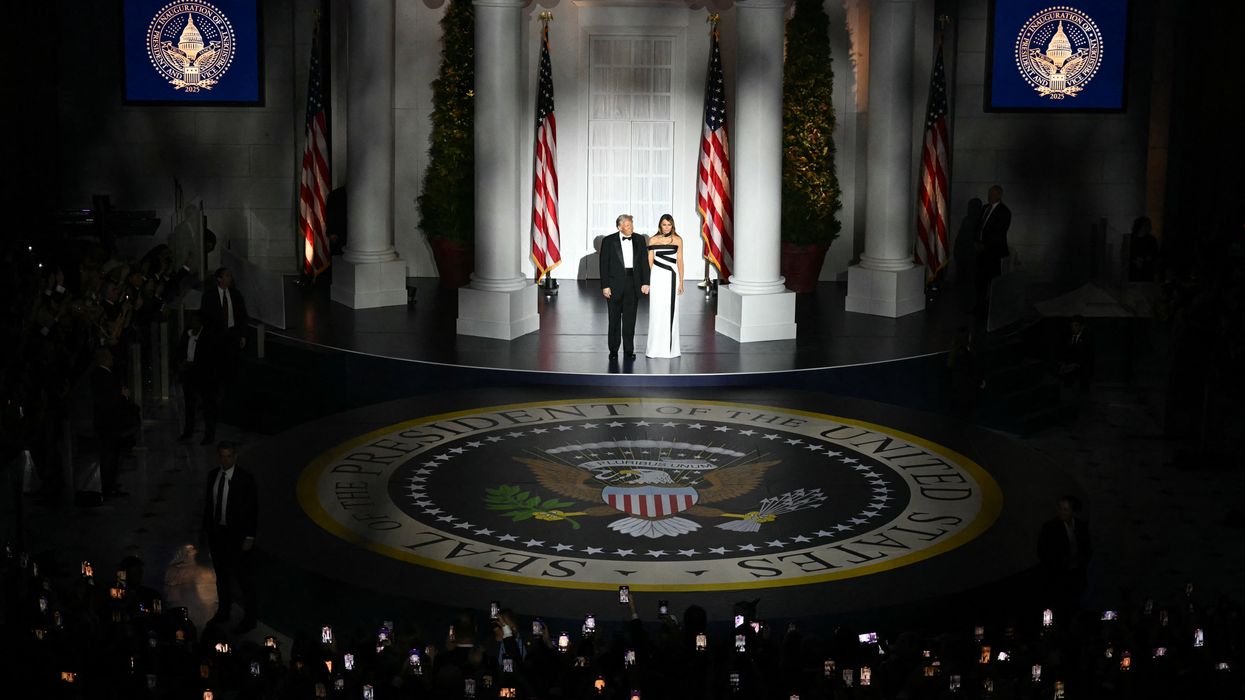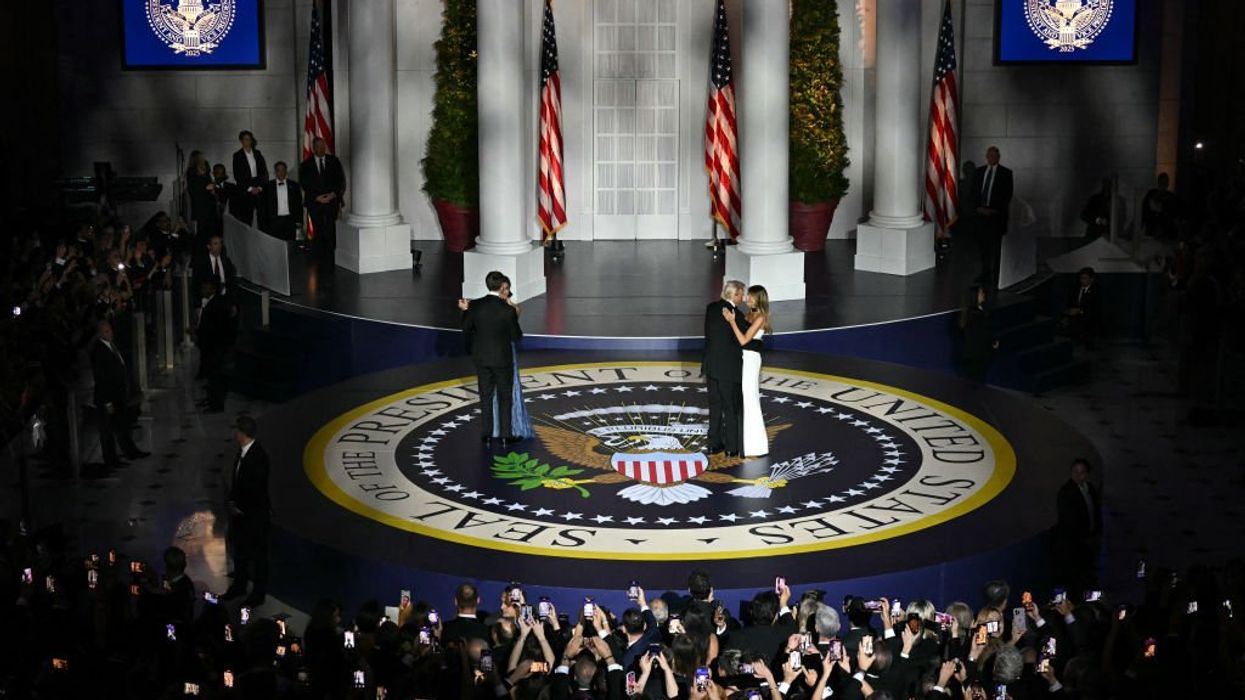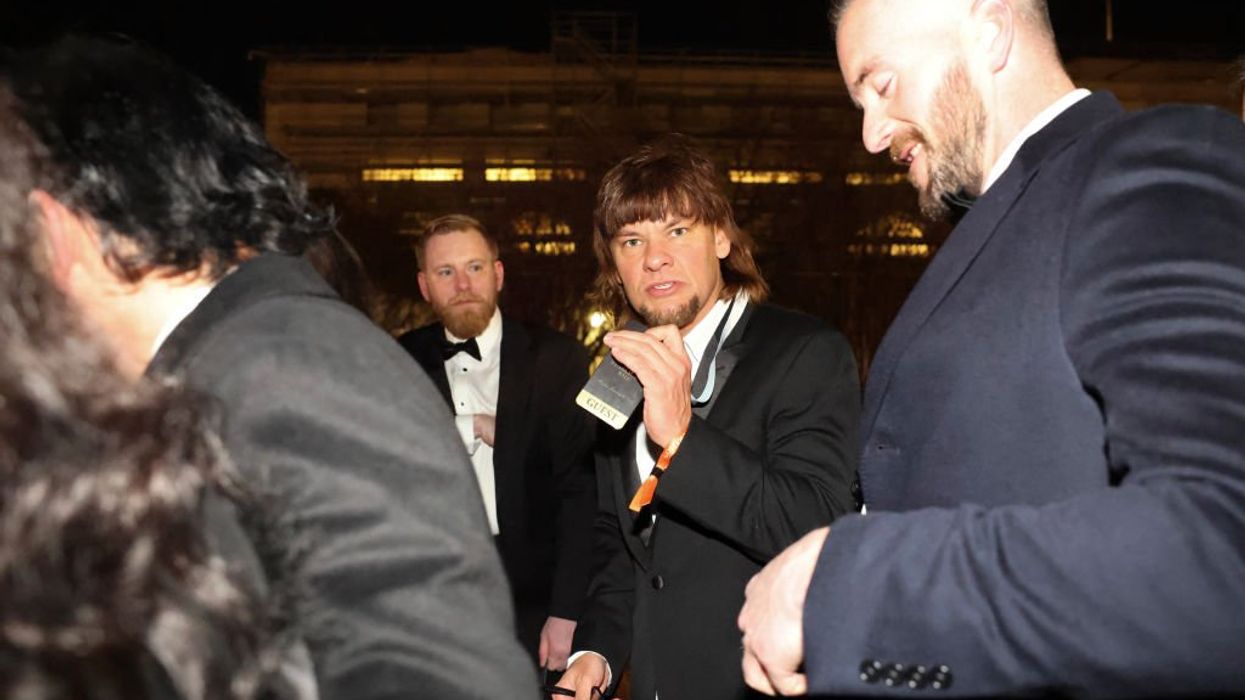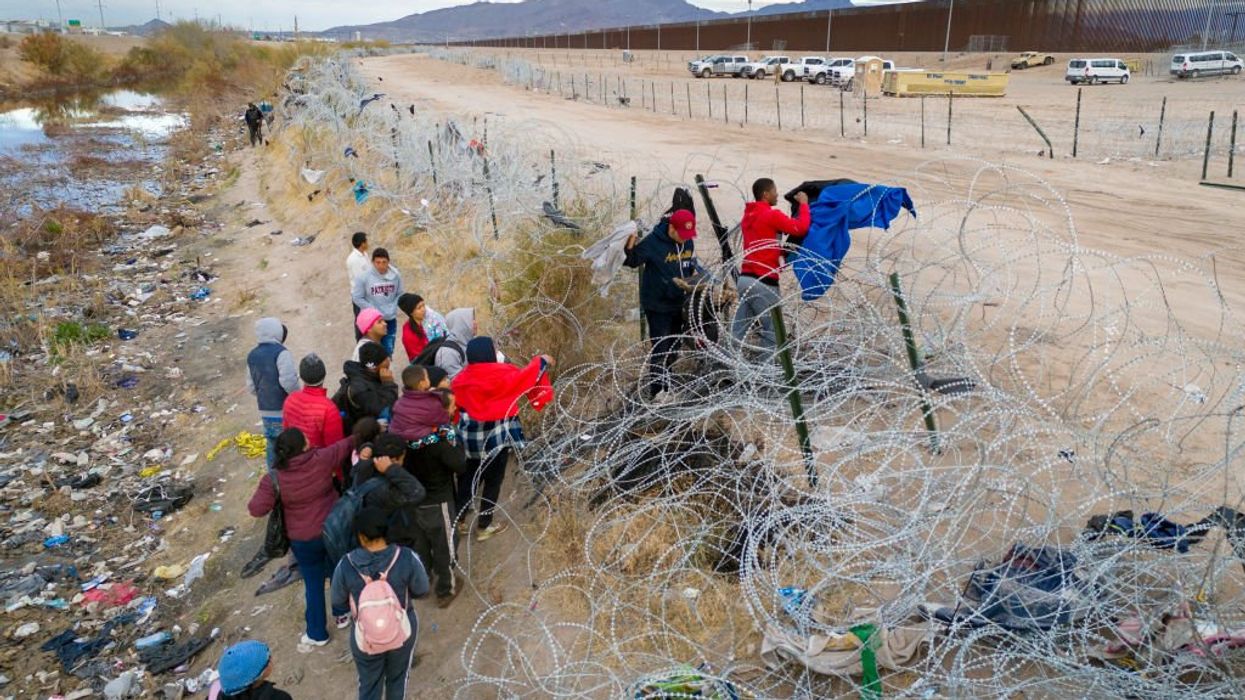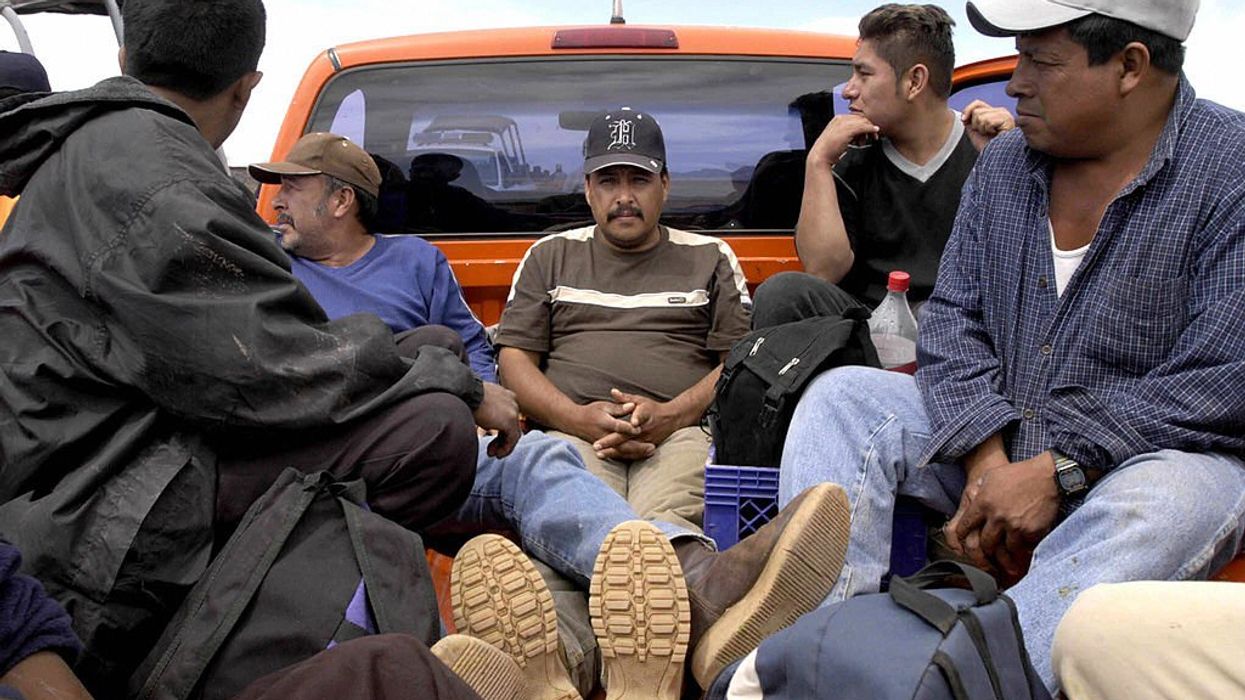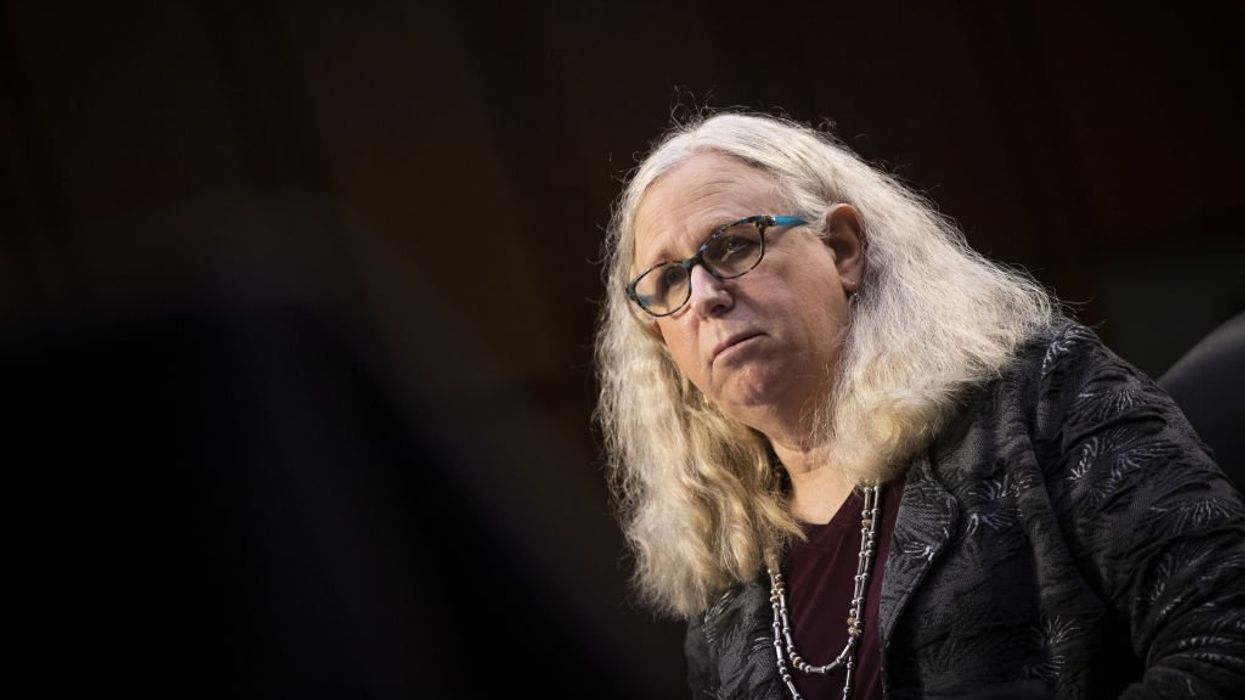Does it seem like every time you tune into the radio show Glenn's talking about another book he just read? He might just be the most well read man on the airwaves and now he's ready to share his list with you.
It's turned into quite an extensive list so over the next few days we will post enough recommendations to keep you busy all through 2019 and beyond. Pick up a book or 20 and read the material that's been shaping Glenn's thinking this past year.
Enjoy!
The Clock Maker's Daughter

By Kate Morton
In the summer of 1862, a group of young artists led by the passionate and talented Edward Radcliffe descends upon Birchwood Manor on the banks of the Upper Thames. Their plan: to spend a secluded summer month in a haze of inspiration and creativity. But by the time their stay is over, one woman has been shot dead while another has disappeared; a priceless heirloom is missing; and Edward Radcliffe's life is in ruins.
The Tattooist of Auschwitz

By Heather Morris
This beautiful, illuminating tale of hope and courage is based on interviews that were conducted with Holocaust survivor and Auschwitz-Birkenau tattooist Ludwig (Lale) Sokolov—an unforgettable love story in the midst of atrocity.
We

By Yevgeny Zamyatin
Yevgeny Zamyatin's We is a powerfully inventive vision that has influenced writers from George Orwell to Ayn Rand. In a glass-enclosed city of absolute straight lines, ruled over by the all-powerful 'Benefactor', the citizens of the totalitarian society of OneState live out lives devoid of passion and creativity - until D-503, a mathematician who dreams in numbers, makes a discovery: he has an individual soul. Set in the twenty-sixth century AD, We is the classic dystopian novel and was the forerunner of works such as George Orwell's 1984 and Aldous Huxley's Brave New World. It was suppressed for many years in Russia and remains a resounding cry for individual freedom, yet is also a powerful, exciting and vivid work of science fiction. Clarence Brown's brilliant translation is based on the corrected text of the novel, first published in Russia in 1988 after more than sixty years' suppression.
Blackhearts

By Nicole Castroman
In this stunningly creative debut "filled with well-drawn characters…and smoldering passion," (Booklist) Nicole Castroman reimagines the origins of history's most infamous pirate—Blackbeard.
When Edward "Teach" Drummond, son of one of Bristol's richest merchants, returns home from a year at sea, he finds his life in shambles. Betrothed to a girl he doesn't love and sick of the high society he was born into, all Teach wants is to return to the vast ocean he calls home. There's just one problem: he must convince his father to let him leave and never come back.
Following the death of her parents, Anne Barrett is left penniless. Though she's barely worked a day in her life, Anne takes a job as a maid in the home of Master Drummond. Lonely days stretch into weeks and Anne longs to escape the confines of her now mundane life. How will she ever achieve her dream of sailing to Curaçao—her mother's birthplace—when she's trapped in England?
From the moment Teach and Anne meet, they set the world ablaze. Drawn together by a shared desire for freedom, but kept apart by Teach's father, their love is as passionate as it is forbidden. Faced with an impossible choice, Teach and Anne must decide whether to chase their dreams and leave England forever—or follow their hearts and stay together.
Children of Time

By Adrian Tchaikovsky
The last remnants of the human race left a dying Earth, desperate to find a new home among the stars. Following in the footsteps of their ancestors, they discover the greatest treasure of the past age—a world terraformed and prepared for human life. But all is not right in this new Eden. In the long years since the planet was abandoned, the work of its architects has borne disastrous fruit. The planet is not waiting for them, pristine and unoccupied. New masters have turned it from a refuge into mankind's worst nightmare. Now two civilizations are on a collision course, both testing the boundaries of what they will do to survive. As the fate of humanity hangs in the balance, who are the true heirs of this new Earth?
White Rose, Black Forrest

By Eoin Dempsey
December 1943. In the years before the rise of Hitler, the Gerber family's summer cottage was filled with laughter. Now, as deep drifts of snow blanket the Black Forest, German dissenter Franka Gerber is alone and hopeless. Fervor and brutality have swept through her homeland, taking away both her father and her brother and leaving her with no reason to live.
That is, until she discovers an unconscious airman lying in the snow wearing a Luftwaffe uniform, his parachute flapping in the wind. Unwilling to let him die, Franka takes him to her family's isolated cabin despite her hatred for the regime he represents. But when it turns out that he is not who he seems, Franka begins a race against time to unravel the mystery of the airman's true identity. Their tenuous bond becomes as inseparable as it is dangerous. Hunted by the Gestapo, can they trust each other enough to join forces on a mission that could change the face of the war and their own lives forever?
The Atlantis Gene

By A.G. Riddle
In Antarctica, researchers find a mysterious structure buried deep in the ice. It's thousands of years old, and something is guarding it. Inside, the team makes a discovery that will rewrite human history--and could set off an extinction level event.
Dr. Kate Warner moved to Jakarta, Indonesia to escape her past. She still hasn't recovered from what happened to her, but she has made the breakthrough of a lifetime: a cure for autism. But Kate's discovery is far more dangerous than she ever imagined.
When two children are abducted from her clinic, Kate is thrust into a global conspiracy with far-reaching consequences. A secret society believes her work may be the key to unleashing the next stage of human evolution. It's an event that will wipe out 99.9% of the human race, and they will stop at nothing to find her and obtain her research.
The race to find the Atlantis Gene has begun. And humanity will never be the same.
The Turing Exception

By William Hertling
William Hertling is the author of the award-winning Avogadro Corp: The Singularity Is Closer Than It Appears, A.I. Apocalypse, The Last Firewall, and The Turing Exception. His near-term science-fiction novels about realistic ways strong AI might emerge have been called "frighteningly plausible", "tremendous", and "must read". Kill Process and Kill Switch comprise his new series about social media, data ownership, privacy, and Internet control.
The Last Firewall

By William Hertling
In the year 2035, robots, artificial intelligences, and neural implants have become commonplace. The Institute for Ethics keeps the peace, using social reputation to ensure that robots and humans don't harm society or each other. But a powerful AI named Adam has found a way around the restrictions.
Catherine Matthews, nineteen years old, has a unique gift: the ability to manipulate the net with her neural implant. Yanked out of her perfectly ordinary life, Catherine becomes the last firewall standing between Adam and his quest for world domination.
Avogadro: The Singularity is Closer Than It Appears

By William Hertling
David Ryan is the designer of ELOPe, an email language optimization program, that if successful, will make his career. But when the project is suddenly in danger of being canceled, David embeds a hidden directive in the software accidentally creating a runaway artificial intelligence.
David and his team are initially thrilled when the project is allocated extra servers and programmers. But excitement turns to fear as the team realizes that they are being manipulated by an A.I. who is redirecting corporate funds, reassigning personnel and arming itself in pursuit of its own agenda.
A.I. Apocalypse

By William Hertling
William Hertling is the author of the award-winning Avogadro Corp: The Singularity Is Closer Than It Appears, A.I. Apocalypse, The Last Firewall, and The Turing Exception. His near-term science-fiction novels about realistic ways strong AI might emerge have been called "frighteningly plausible", "tremendous", and "must read". Kill Process and Kill Switch comprise his new series about social media, data ownership, privacy, and Internet control.
The Fear Index

By Robert Harris
At the nexus of high finance and sophisticated computer programming, a terrifying future may be unfolding even now.
Dr. Alex Hoffmann's name is carefully guarded from the general public, but within the secretive inner circles of the ultrarich he is a legend. He has developed a revolutionary form of artificial intelligence that predicts movements in the financial markets with uncanny accuracy. His hedge fund, based in Geneva, makes billions. But one morning before dawn, a sinister intruder breaches the elaborate security of his lakeside mansion, and so begins a waking nightmare of paranoia and violence as Hoffmann attempts, with increasing desperation, to discover who is trying to destroy him.
Fiendishly smart and suspenseful, The Fear Index gives us a searing glimpse into an all-too-recognizable world of greed and panic. It is a novel that forces us to confront the question of what it means to be human—and it is Robert Harris's most spellbinding and audacious novel to date.
Origin

By Dan Brown
Robert Langdon, Harvard professor of symbology, arrives at the ultramodern Guggenheim Museum Bilbao to attend the unveiling of a discovery that "will change the face of science forever." The evening's host is Edmond Kirsch, a forty-year-old billionaire and futurist, and one of Langdon's first students.
But the meticulously orchestrated evening suddenly erupts into chaos, and Kirsch's precious discovery teeters on the brink of being lost forever. Facing an imminent threat, Langdon is forced to flee. With him is Ambra Vidal, the elegant museum director who worked with Kirsch. They travel to Barcelona on a perilous quest to locate a cryptic password that will unlock Kirsch's secret.
Navigating the dark corridors of hidden history and extreme religion, Langdon and Vidal must evade an enemy whose all-knowing power seems to emanate from Spain's Royal Palace. They uncover clues that ultimately bring them face-to-face with Kirsch's shocking discovery…and the breathtaking truth that has long eluded us.
Use of Force

By Brad Thor
From #1 New York Times bestselling author Brad Thor comes "his latest pulse-pounding adventure" (The Real Book Spy) that follows covert operative Scot Harvath as he is called upon to stop an ISIS-led plot to destroy the Vatican.
As a storm rages across the Mediterranean Sea, a terrifying distress call is made to the Italian Coast Guard. Days later, a body washes ashore. Identified as a missing high value terrorism suspect, his name sends panic through the Central Intelligence Agency.
Where was he headed? What was he planning? In a race against time, the CIA taps an unorthodox source to get answers: Navy SEAL turned covert counterterrorism operative, Scot Harvath. Hired on a black contract, Harvath will provide the deniability the United States needs, while he breaks every rule along the way.
Inglorious Empire: What the British Did to India

By Sashi Tharoor
In the eighteenth century, India's share of the world economy was as large as Europe's. By 1947, after two centuries of British rule, it had decreased six-fold. Beyond conquest and deception, the Empire blew rebels from cannon, massacred unarmed protesters, entrenched institutionalised racism, and caused millions to die from starvation.
British imperialism justified itself as enlightened despotism for the benefit of the governed, but Shashi Tharoor takes on and demolishes this position, demonstrating how every supposed imperial "gift"―from the railways to the rule of law―was designed in Britain's interests alone. He goes on to show how Britain's Industrial Revolution was founded on India's deindustrialization and the destruction of its textile industry. In this bold and incisive reassessment of colonialism, Tharoor exposes to devastating effect the inglorious reality of Britain's stained Indian legacy.
The Churchill Factor: How One Man Made History

By Boris Johnson
On the fiftieth anniversary of Churchill's death, Boris Johnson celebrates the singular brilliance of one of the most important leaders of the twentieth century. Taking on the myths and misconceptions along with the outsized reality, he portrays—with characteristic wit and passion—a man of contagious bravery, breathtaking eloquence, matchless strategizing, and deep humanity.
Fearless on the battlefield, Churchill had to be ordered by the king to stay out of action on D-day; he pioneered aerial bombing and few could match his experience in organizing violence on a colossal scale, yet he hated war and scorned politicians who had not experienced its horrors. He was the most famous journalist of his time and perhaps the greatest orator of all time, despite a lisp and the chronic depression he kept at bay by painting. His maneuvering positioned America for entry into World War II, even as it ushered in England's postwar decline. His open-mindedness made him a trailblazer in health care, education, and social welfare, though he remained incorrigibly politically incorrect. Most of all, he was a rebuttal to the idea that history is the story of vast and impersonal forces; he is proof that one person—intrepid, ingenious, determined—can make all the difference.
American Eve

By Paula Uruburu
By the time of her sixteenth birthday in 1900, Evelyn Nesbit was known to millions as the most photographed woman of her era, an iconic figure who set the standard for female beauty, and whose innocent sexuality was used to sell everything from chocolates to perfume. Women wanted to be her. Men just wanted her. But when Evelyn's life of fantasy became all too real and her insanely jealous millionaire husband, Harry K. Thaw, murdered her lover, New York City architect Stanford White, the most famous woman in the world became infamous as she found herself at the center of the "Crime of the Century" and a scandal that signaled the beginning of a national obsession with youth, beauty, celebrity, and sex.
Freedom's Forge: How American Business Produced Victory in WWII

By Arthur Herman
Freedom's Forge reveals how two extraordinary American businessmen—General Motors automobile magnate William "Big Bill" Knudsen and shipbuilder Henry J. Kaiser—helped corral, cajole, and inspire business leaders across the country to mobilize the "arsenal of democracy" that propelled the Allies to victory in World War II. Drafting top talent from companies like Chrysler, Republic Steel, Boeing, Lockheed, GE, and Frigidaire, Knudsen and Kaiser turned auto plants into aircraft factories and civilian assembly lines into fountains of munitions. In four short years they transformed America's army from a hollow shell into a truly global force, laying the foundations for the country's rise as an economic as well as military superpower. Freedom's Forge vividly re-creates American industry's finest hour, when the nation's business elites put aside their pursuit of profits and set about saving the world.
Empires of Light: Edison, Tesla, Westinghouse, and the Race to Electrify the World

By Jill Jonnes
In the final decades of the nineteenth century, three brilliant and visionary titans of America's Gilded Age—Thomas Edison, Nikola Tesla, and George Westinghouse—battled bitterly as each vied to create a vast and powerful electrical empire. In Empires of Light, historian Jill Jonnes portrays this extraordinary trio and their riveting and ruthless world of cutting-edge science, invention, intrigue, money, death, and hard-eyed Wall Street millionaires. At the heart of the story are Thomas Alva Edison, the nation's most famous and folksy inventor, creator of the incandescent light bulb and mastermind of the world's first direct current electrical light networks; the Serbian wizard of invention Nikola Tesla, elegant, highly eccentric, a dreamer who revolutionized the generation and delivery of electricity; and the charismatic George Westinghouse, Pittsburgh inventor and tough corporate entrepreneur, an industrial idealist who in the era of gaslight imagined a world powered by cheap and plentiful electricity and worked heart and soul to create it.
Edison struggled to introduce his radical new direct current (DC) technology into the hurly-burly of New York City as Tesla and Westinghouse challenged his dominance with their alternating current (AC), thus setting the stage for one of the eeriest feuds in American corporate history, the War of the Electric Currents. The battlegrounds: Wall Street, the 1893 Chicago World's Fair, Niagara Falls, and, finally, the death chamber—Jonnes takes us on the tense walk down a prison hallway and into the sunlit room where William Kemmler, convicted ax murderer, became the first man to die in the electric chair.
Empires of Light is the gripping history of electricity, the "mysterious fluid," and how the fateful collision of Edison, Tesla, and Westinghouse left the world utterly transformed.
The Idea of Decline in Western History

By Arthur Herman
Historian Arthur Herman traces the roots of declinism and shows how major thinkers, past and present, have contributed to its development as a coherent ideology of cultural pessimism.
From Nazism to the Sixties counterculture, from Britain's Fabian socialists to America's multiculturalists, and from Dracula and Freud to Robert Bly and Madonna, this work examines the idea of decline in Western history and sets out to explain how the conviction of civilization's inevitable end has become a fixed part of the modern Western imagination. Through a series of biographical portraits spanning the 19th and 20th centuries, the author traces the roots of declinism and aims to show how major thinkers of the past and present, including Nietzsche, DuBois, Sartre, and Foucault, have contributed to its development as a coherent ideology of cultural pessimism.

